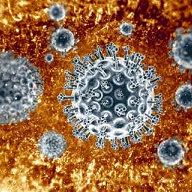Article
Genetic Difference May Affect Drug Response in Hepatitis C
Author(s):
A genetic various appears to play a role in which patients are cured of hepatitis C infection, according to researchers who looked at patients treated with interferon plus ribavirin. The next question is whether that difference might play a role in response to direct-acting antivirals as well.

Researchers examining the relationship between the SCARB1 single nucleotide polymorphisms (SNPs) and hepatitis C virus (HCV) infection found that patients with chronic hepatitis C (CHC) had higher body mass, higher serum alanine aminotransferase levels, but lower platelet counts compared to healthy subjects.
The research was carried out by ching-Sheng Hsu of the Division of Gastroenterology in the Department of Internal Medicine at Taipei Tzu Chi Hospital in Taipei, Taiwan, and colleagues, and was published in the journal Nature recently.
There were a total of 309 participants in the study, with 156 HCV patients with genotype 1 or 2 and 153 healthy controls. “Among CHC patients, 110 (70.5%) patients attained rapid virologic response (RVR) to pegylated interferon alfa-2a (Peg0IFN alfa-2a) plus ribavirin therapy and 118 (75.6%) achieved SVR [sustained virologic response]” say the authors.
“Our data showed that SCARB1 rs10846744 GG genotype may serve as unfavorable therapeutic factor for CHC patients receiving pegylated interferon plus ribavirin therapy,” say the researchers. They add that their data shows both a predictive value for SCARB1 genotype CHC patients and “imply a possible extrapolation of this predictor to those who receive interferon-free DAAs [direct acting antivirals] therapy.”
The researchers acknowledge several limitations to this study, including the retrospective design. They suggest that longitudinal studies would allow for exploration of the impact of disease stages. Additionally, they say, “the rs10846744 variant was helpful in predicting virological response for specific subgroup populations,” but that future studies should investigate its use in combination with other profiles and viral kinetics. They further suggest that future studies should take into account patients receiving interferon-free DAAs therapies.
The authors conclude, “In summary the rs10846744 variant may serve as a potential predictor of the treatment responses in CHC patients with interferon-based therapy.”
Related Coverage:
Switching from Nonspecific to Targeted Therapies
Panel Recommends Treatment with New Drugs for Nearly all Who have Chronic Hepatitis C
New Medication Possibilities, New Potential for Hepatitis C Treatments





